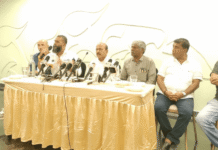Swaraj Dweep saw a day of extensive administrative outreach as the Sub-Divisional Officer of South Andaman undertook a detailed review of local services while directly engaging with the island’s residents. The visit reflected a wider effort by the administration to decentralize service delivery, strengthen ties with Panchayati Raj Institutions, and ensure responsive governance for remote island communities.
The highlight of the day was a Revenue Camp Court convened at the Shyamnagar Panchayat Hall. Designed to bring administrative services closer to the public, the camp enabled residents to address pending issues related to land, records, and allied services. By eliminating the need for long journeys to Port Blair or other offices, the initiative offered a convenient solution at the doorstep of residents. A significant number of locals made use of the camp, underscoring the importance of such decentralized service delivery mechanisms.
Beyond revenue matters, the SDO also convened an interactive session with elected representatives of Panchayati Raj Institutions from Govinda Nagar and Shyamnagar Panchayats. These discussions provided PRI members with the opportunity to highlight pressing developmental concerns ranging from infrastructure gaps to service bottlenecks. The SDO took note of the issues and assured coordination with relevant departments for effective follow-up. The exercise not only strengthened grassroots governance but also reinforced the principle of participatory decision-making, giving local representatives a direct channel to administration.
Healthcare infrastructure, another critical area of concern in island communities, also came under review. At the Primary Health Centre in Swaraj Dweep, the SDO inspected the availability of medicines, staffing positions, and overall patient care systems. Staff on duty interacted with the official, providing updates on their challenges and operational needs. Emphasis was placed on ensuring prompt and reliable healthcare delivery to island residents, a matter of particular urgency given the geographical isolation of Swaraj Dweep.
The multi-pronged approach of the visit revealed how administrative outreach can simultaneously address legal, civic, and healthcare needs in a single exercise. For residents, it was an opportunity to engage with decision-makers without leaving the island, reducing delays and cutting red tape. For the administration, it provided first-hand exposure to local realities that often remain obscured by routine paperwork and distant reporting.
Such visits form part of a broader pattern where the South Andaman administration seeks to improve the accessibility of governance. In islands where logistical challenges often make routine tasks complicated, initiatives like camp courts and on-site inspections serve as critical bridges between the administration and the public. By interacting with both residents and local representatives, the SDO underscored the importance of two-way communication in building trust and ensuring accountability.
Residents who attended the sessions experienced the benefits of direct access to officials, an interaction that is rare in geographically remote settings. PRI members, meanwhile, gained a platform to collectively present their concerns, ensuring that development issues were considered in a coordinated fashion. The focus on health services added another layer of value to the visit, highlighting the administration’s recognition of healthcare as a pillar of community welfare.
Overall, the Swaraj Dweep visit demonstrated a practical model of governance tailored to the needs of island populations. Rather than expecting citizens to seek out services at distant centres, the administration chose to bring services, dialogue, and oversight directly to them. The day-long programme showcased how governance, when proactive and inclusive, can address immediate needs while also laying the foundation for long-term improvements in service delivery.
For Swaraj Dweep, the exercise may well mark the beginning of more frequent outreach visits, reinforcing the island’s integration into broader developmental efforts while ensuring that local voices remain central to planning and execution.






